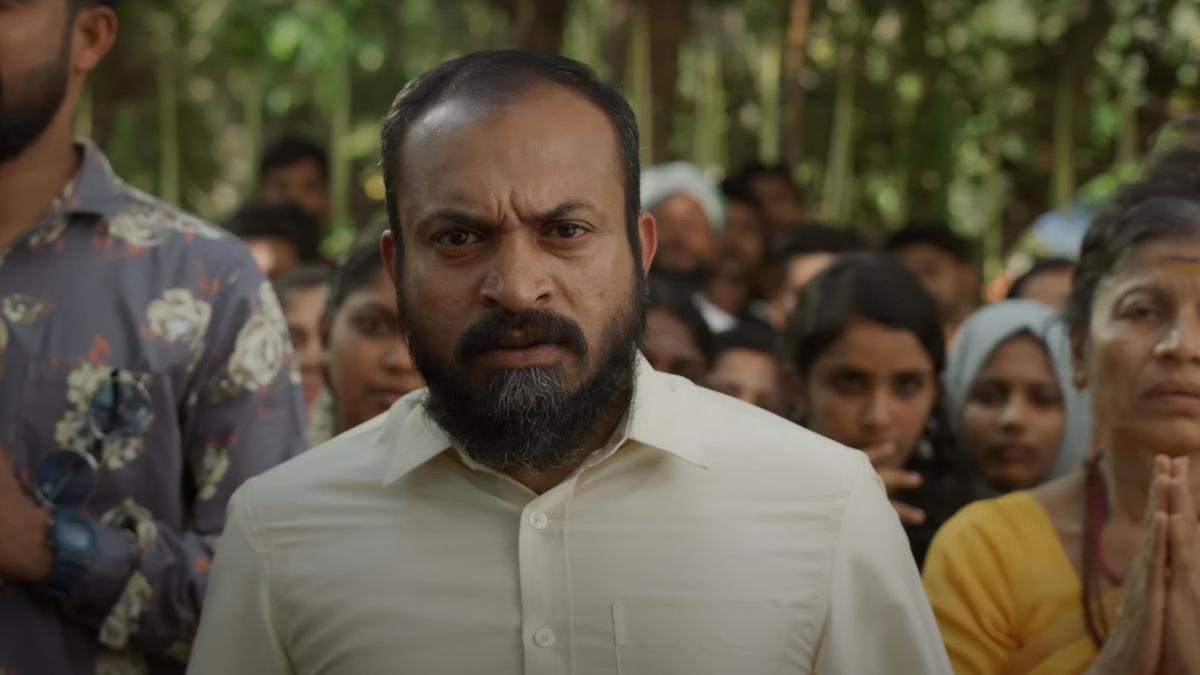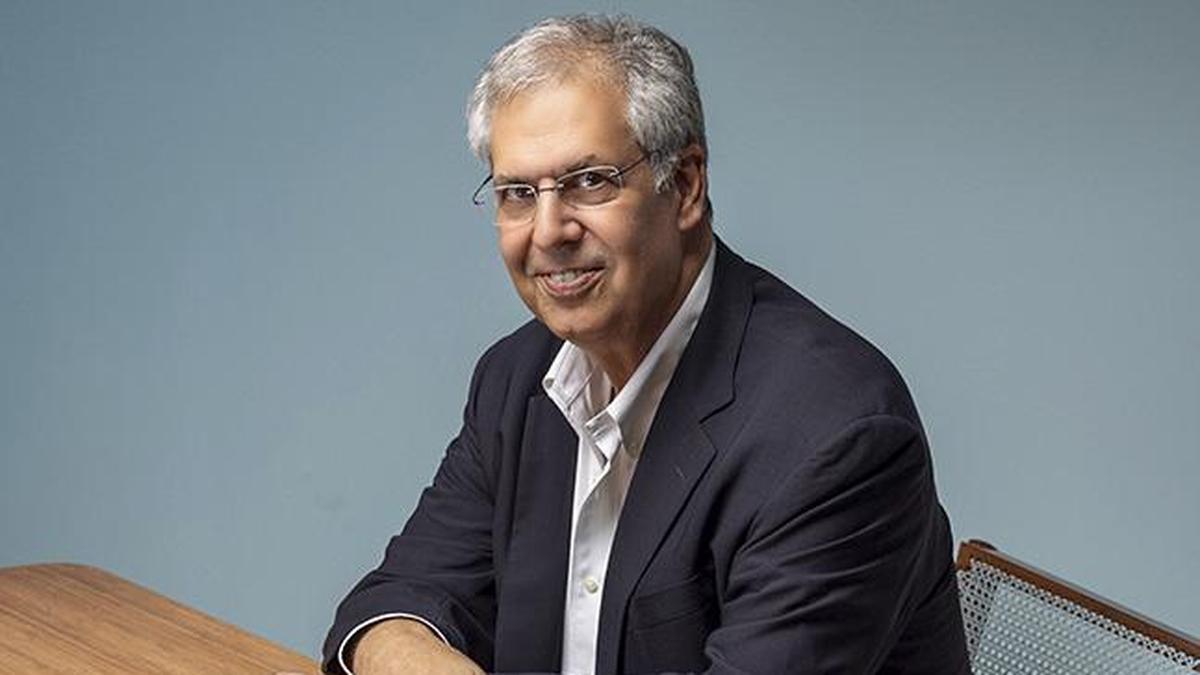Soubin Shahir in a still from ‘Djinn’
| Photo Credit: Straightline Cinemas
Djinn, for the most part, is concerned with Lalappan’s (Soubin Shahir) mind, or to be precise, its imbalances. However, even in the end, even after an explanation from a psychologist, one does not really know what troubles him or what could be the source of the imbalances. It could be because the film itself is not concerned about these matters, and is more invested in the many situations that can be conjured up using someone with such a condition.
Lalappan’s wedding day is the audience’s entry point into his life. Django (Sharaf U Dheen), his constant companion, ushers him to the venue, even as the strange expression on his face tells us that things will turn out horribly wrong. A passing comment that compares the bride to a goddess sets off a train of thoughts in Lalappan’s mind, leading him to think that the goddess has left the Sanctum sanctorum and is standing in front of him, as his bride. As expected, the wedding does not happen, and from the chatter of the gathered villagers, it is revealed that random spirits take possession of his body quite often.
Djinn (Malayalam)
Director: Sidharth Bharathan
Cast: Soubin Shahir, Santhy Balachandran, Sharaf U Dheen
Runtime: 133 minutes
Storyline: Follows the life of Lalappan who suffers from a strange mental health issue
His strange condition is used intelligently in some sequences, like the one in which a dead ex-service man’s spirit enters him to stop a gang from cutting a tree. However, these end up as standalone bright spots in what is otherwise an incoherent attempt. At one point, it even transforms into a story of doppelgangers, with the narrative somewhat reminiscent of Amitabh Bachchan’s Don; but here, the innocent doppelganger has much more to do in Don’s home than in the crime syndicate. A few portions here work, in particular, the script does explore how the relationship equations within the home transform with the arrival of the doppelganger.
Filmmaker Sidharth Bharathan, who made the rather forgettable racy thriller Chathuram recently, is in better form in Djinn, but that form is visible only in flashes. For much of its runtime, one gets the impression of the scriptwriter and the filmmaker trying to say a lot of things in too little time. We are not sure if they wanted to explore the mental health aspects of the character, although there is that customary scene towards the end where the doctor talks of the need for the right treatment and the role society plays in it. But for the rest of the narrative, the script views his condition as a thing in a curio shop.
Djinn has an intriguing character at its centre, but the film fails in trying too many things with that character, and in not addressing the basic questions about him.





